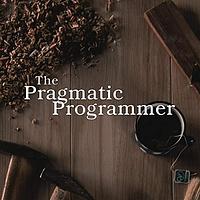Take a photo of a barcode or cover
226 reviews for:
The Pragmatic Programmer: 20th Anniversary Edition, 2nd Edition
David Thomas, Andrew Hunt
226 reviews for:
The Pragmatic Programmer: 20th Anniversary Edition, 2nd Edition
David Thomas, Andrew Hunt
This book is essentially The 7 Habits of Highly Effective Programmers. The authors give (mostly) good advice, but it isn't the how-to guidebook filled with practical approaches to solving problems the back cover would lead you to believe. They spent most of their time motivating why certain practices should be followed, which is important, but rather little on teaching how to follow their advice. They also spend far too much time, I think, on metaphors, stories, and slipping in the word "pragmatic"--all of which makes the book read like something written by an entrepreneur rather than an engineer.
They do refer to more detailed texts for specific needs, but I didn't find it helpful to read through 300 pages just to be told to write modular code, that regression tests are good, and to automate whenever possible, when I expected practical advice on how to do these things well.
They do refer to more detailed texts for specific needs, but I didn't find it helpful to read through 300 pages just to be told to write modular code, that regression tests are good, and to automate whenever possible, when I expected practical advice on how to do these things well.
This book seems like conversations with the master programmer. It more or less reads like stories your grandma would tell you as bed time stories if your grandma was a master developer and you were just learning the craft.
As other reviews said, even people who knew everything in the book, still can learn from it. There are plenty of practical explanations for all the problems so that the reader understands why the advice is recommended.
I don't know many programmers who don't learn at least something from the authors. I added this to a list of books I intended to read to get better at my craft, and I was not disappointed. Onward!
As other reviews said, even people who knew everything in the book, still can learn from it. There are plenty of practical explanations for all the problems so that the reader understands why the advice is recommended.
I don't know many programmers who don't learn at least something from the authors. I added this to a list of books I intended to read to get better at my craft, and I was not disappointed. Onward!
informative
medium-paced
challenging
informative
Das fast 20 Jahre alte Buch enthält sicherlich einige wertvolle Tipps, doch hat seinen Zenit trotzdem überschritten.
informative
medium-paced
Slightly outdated nowadays (the authors claim that things move fast 'like Java'!) in the intricacies of its technological aspects, but the upside is that it has little.
This is a book full of broadly applicable techniques and guidelines for developing software within a business. So broad in fact that it wouldn't be surprised if people of entirely unrelated disciplines gained something reading it.
This is a book full of broadly applicable techniques and guidelines for developing software within a business. So broad in fact that it wouldn't be surprised if people of entirely unrelated disciplines gained something reading it.
It was pretty good. It's less about programming as a hobby or an art and more about how to program for business firms.
This is one of the most important books a professional programmer can read. The concepts are simple, but also aspects of the job that are just never discussed. Like "Provide Options, Don't Make Lame Excuses". I read it 15 years ago, and still remember their words: "How do you feel when your car mechanic gives you some lame excuse about why your car is late? Now how do you think your co-worker feels about your lame excuse?"
Uno pensaría que las ideas expresadas en libro son obvias para alguien que ya lleva años de experiencia en el gremio, pero al menos en los circulos en que me muevo siento que debo recomendarlo con vehemencia. El par de autores expresan claramente como veo mi rol y el valor que puedo aportar como desarrollador, la etica y disciplina que ello implica. Es un camino extenso, pero vale la pena recorrerlo, y este libro me arma de coraje para no rendirme.
A carefully selected list of software engineering tips. Compelling and plainly laid-out arguments for making successful software projects. Some tips are dogmatic and controversial but each chapter is thought-provoking at least and behaviour-changing at most.
Surprisingly, I thought the weakest tips were ones that brought up specific code or language features. You can tell the authors have thought long and hard about how the perfect software engineer would behave. Each tip had me thinking and challenging my assumptions and I think many will be valuable to remember or refer back to later.
I would also definitely recommend reading the 20th-anniversary edition. It has some useful reflections on how the first edition was interpreted and revisits the DRY principle.
Surprisingly, I thought the weakest tips were ones that brought up specific code or language features. You can tell the authors have thought long and hard about how the perfect software engineer would behave. Each tip had me thinking and challenging my assumptions and I think many will be valuable to remember or refer back to later.
I would also definitely recommend reading the 20th-anniversary edition. It has some useful reflections on how the first edition was interpreted and revisits the DRY principle.



